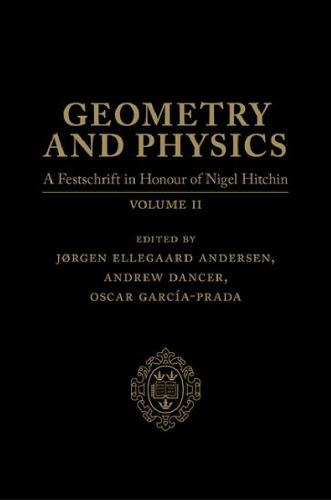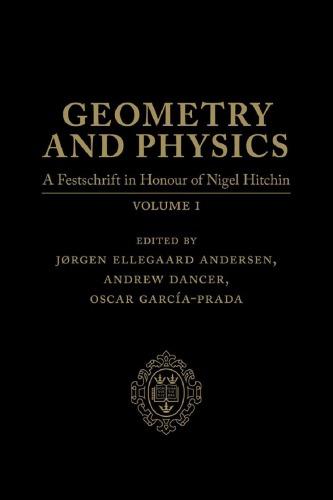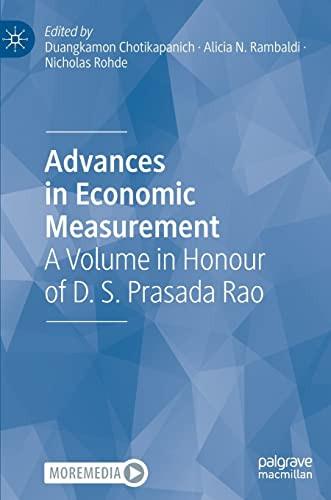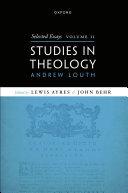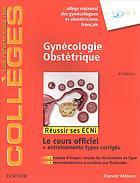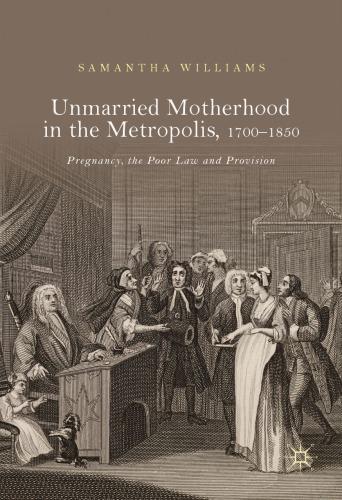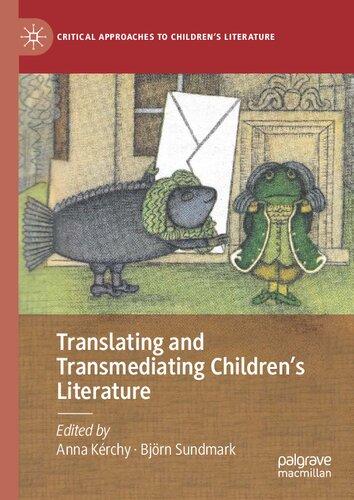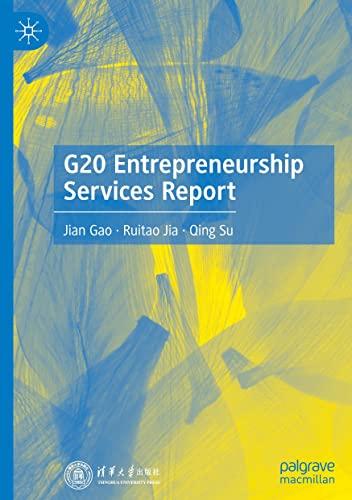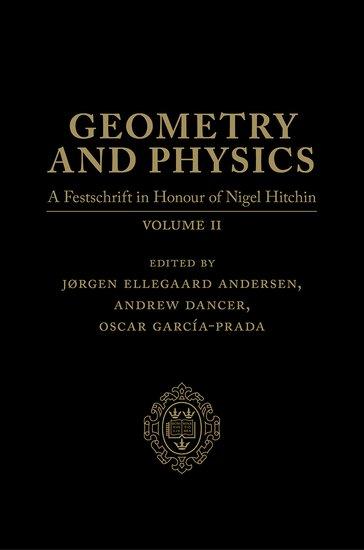GeometryandPhysics
AFestschriftinHonourofNigelHitchin
Editedby
JØRGENELLEGAARDANDERSEN
ANDREWDANCER
OSCARGARCÍA-PRADA
VOLUMEII
GreatClarendonStreet,Oxford,OX26DP, UnitedKingdom
OxfordUniversityPressisadepartmentoftheUniversityofOxford. ItfurtherstheUniversity’sobjectiveofexcellenceinresearch,scholarship, andeducationbypublishingworldwide.Oxfordisaregisteredtrademarkof OxfordUniversityPressintheUKandincertainothercountries
©OxfordUniversityPress2018
Themoralrightsoftheauthorshavebeenasserted
FirstEditionpublishedin2018
Impression:1
Allrightsreserved.Nopartofthispublicationmaybereproduced,storedin aretrievalsystem,ortransmitted,inanyformorbyanymeans,withoutthe priorpermissioninwritingofOxfordUniversityPress,orasexpresslypermitted bylaw,bylicenceorundertermsagreedwiththeappropriatereprographics rightsorganization.Enquiriesconcerningreproductionoutsidethescopeofthe aboveshouldbesenttotheRightsDepartment,OxfordUniversityPress,atthe addressabove
Youmustnotcirculatethisworkinanyotherform andyoumustimposethissameconditiononanyacquirer
PublishedintheUnitedStatesofAmericabyOxfordUniversityPress 198MadisonAvenue,NewYork,NY10016,UnitedStatesofAmerica
BritishLibraryCataloguinginPublicationData
Dataavailable
LibraryofCongressControlNumber:2018940609
TwovolumesetISBN978–0–19–880200–6 VolumeoneISBN978–0–19–880201–3 VolumetwoISBN978–0–19–880202–0 DOI:10.1093/oso/9780198802006.001.0001
Printedandboundby CPIGroup(UK)Ltd,Croydon,CR04YY
LinkstothirdpartywebsitesareprovidedbyOxfordingoodfaithand forinformationonly.Oxforddisclaimsanyresponsibilityforthematerials containedinanythirdpartywebsitereferencedinthiswork.
davidbaraglia1 indranilbiswas2 laurap.schaposnik3
1 SchoolofMathematicalSciences,TheUniversityofAdelaide,AdelaideSA5005,Australia, Email:david.baraglia@adelaide.edu.au
2 SchoolofMathematics,TataInstituteofFundamentalResearch,HomiBhabhaRoad,Bombay 400005,India,Email:indranil@math.tifr.res.in
3 DepartmentofMathematics,UniversityofIllinois,Chicago,IL60607,USAandFreie UniversitätBerlin,14195Berlin,Germany,Email:schapos@illinois.edu
Abstract. GivenacompactRiemannsurface X andasemi-simpleaffinealgebraicgroup G definedover C,therearemodulispacesofHiggsbundlesandofconnectionsassociated to (X , G).WecomputetheBrauergroupofthesmoothlocusofthesevarieties.
ToNigelHitchin,ontheoccasionofhisseventieth birthday.
1.Introduction
WededicatethispapertothestudyoftheBrauergroupofthemodulispacesofcertain HiggsbundlesandofholomorphicconnectionsonaRiemannsurface.Recallthat,givena complexquasiprojectivevariety Z,itsBrauergroupBr(Z) consistsoftheMoritaequivalence classesofAzumayaalgebrasover Z.Thisgroupcoincideswiththeequivalenceclassesof principalPGL-bundlesover Z,wheretwoprincipalPGL-bundles P and Q areidentified iftherearevectorbundles V and W over Z suchthatthetwoprincipalPGL-bundles P ⊗ P(V ) and Q ⊗ P(W ) areisomorphic.ThecohomologicalBrauergroupBr (Z) ofthe
2000 MathematicsSubjectClassification.14F22,14H60.
Keywordsandphrases.Brauergroup.Higgsbundles,connections,charactervariety.
Baraglia,D.,Biswas,I.,Schaposnik,L.P., BrauerGroupofModuliofHiggsBundlesandConnections.In: Geometryand Physics:AFestschriftinHonourofNigelHitchin,JørgenEllegaardAndersen,AndrewDancer,OscarGarcía-Prada(Eds): OxfordUniversityPress(2018).©OxfordUniversityPress.DOI:10.1093/oso/9780198802006.003.0014
variety Z isthetorsionpartoftheétalecohomologygroup H 2 (Z, Gm ).Thereisanatural injectivehomomorphismBr(Z) −→ Br (Z) whichisinfactanisomorphismbyatheorem ofGabber[dJ],[Ho].
ConsidernowacompactconnectedRiemannsurface X ofgenus g ≥ 3.Givenafixedbase point x0 andtwointegers r ≥ 2and δ ,welet MC denotethemodulispaceofalllogarithmic connections (E, D) on X ,singularover x0 ,satisfyingthefollowingfournaturalconditions:
I. E isaholomorphicvectorbundleon X ofrank r with r E = OX (δ x0 ),
II.thelogarithmicconnectionon r E = OX (δ x0 ) inducedby D coincideswiththe connectionon OX (δ x0 ) definedbythedeRhamdifferential, III.theresidueof D at x0 is δ r IdEx0 and IV.thereisnoholomorphicsubbundle F ⊂ E with1 ≤ rank(F )< r suchthat D preserves F
Thismodulispace MC hasanaturalprojectivebundleoncewefixapointof X , PC −→ MC ,
throughwhichinSection2westudytheBrauergroupBr(MC ):
Theorem2.4 TheBrauergroup Br(MC ) isisomorphicto Z/τ Z,where τ = g.c.d.(r , δ).The group Br(MC ) isgeneratedbytheclassof PC .
FixingthecompactconnectedRiemannsurface X andtheinvariant δ ,onecanalso computetheanalyticBrauergroupoftheSL(r , C)–charactervariety R associatedtothe pair (X , δ).
Theorem2.5 TheanalyticcohomologicalBrauergroup Bran (R) isisomorphictoaquotientof thecyclicgroup Z/τ Z,where τ = g.c.d.(r , δ).Thegroup Bran (R) isgeneratedbytheclassofa naturallyassociatedprojectivebundle PR
OverthecompactconnectedRiemannsurface X ,onemayalsoconsiderthemodulispace MH ofstableHiggsbundleson X oftheform (E, ),where
• E isaholomorphicvectorbundleofrank r with r E = OX (δ x0 ) and
• isaHiggsfieldon X withtrace( ) = 0.
Themodulispace MH isasmoothquasiprojectivevarietywhichalsohasanaturalprojectivebundle
PH −→ MH oncewefixapointof X .InSection2.3,westudytheBrauergroupof MH andprovethe following:
Proposition2.7. Thegroup Br(MH ) isisomorphictothecyclicgroup Z/τ Z,anditis generatedbytheclassof PH
Oneshouldnotethat,asseeninSection3,theresultsofSection2extendtothecontext ofprincipalbundles.Weshallconcludethispaperbylookingatourresultsinthecontextof LanglandsdualityinSection4.
2.BrauerGroupofSomeModuliSpaces
Asintheintroduction,weshallconsideracompactconnectedRiemannsurface X ofgenus g ≥ 3withafixedbasepoint x0 ∈ X ,anddenoteby KX itscanonicalbundle.
2.1.BrauerGroupofModuliSpacesofConnections
A logarithmicconnection on X singularover x0 isapairoftheform (E, D),where E isa holomorphicvectorbundleon X and D : E −→ E ⊗ KX ⊗ OX (x0 ) isaholomorphicdifferentialoperatoroforder1satisfyingtheLeibnizidentity
foralllocallydefinedholomorphicfunctions f on X andalllocallydefinedholomorphic sections s of E.Notethatthefibre (KX ⊗ OX (x0 ))x0 iscanonicallyidentifiedwith C by sendingany c ∈ C totheevaluationat x0 ofthelocallydefinedsection c dz z of KX ⊗ OX (x0 ), where z isanyholomorphicfunctiondefinedaround x0 with z(x0 ) = 0and (dz)(x0 ) = 0. Moreover,theevaluationof dz z at x0 doesnotdependonthechoiceofthefunction z.Using thisidentificationof (KX ⊗ OX (x0 ))x0 with C,foranylogarithmicconnection D asabove, wehavethelinearendomorphismofthefibre Ex0 givenbythecomposition E D −→ E ⊗ KX ⊗ OX (x0 ) −→ (E ⊗ KX ⊗
ThiselementofEnd(Ex0 ) = Ex0 ⊗ E∗ x0 iscalledthe residue of D (see[De,p.53]),whichwe shalldenotebyRes(D, x0 ).Then,from[Oh,pp.16–17,Theorem3],and[De],onehas degree(E) + trace(Res(D, x0 )) = 0. (2.2)
Fornotationalconvenience,weshalllet K := KX ⊗ OX (x0 )
Definition2.1 Alogarithmicconnection (E, D) asaboveiscalled semi-stable (respectively, stable)if,foreveryholomorphicsubbundle0 = F E with D(F ) ⊂ F ⊗ K,the followinginequalityholds:
degree(F ) rank(F ) ≤ degree(E) rank(E) respectively, degree(F ) rank(F ) < degree(E) rank(E) .
AsdoneinSection1,fixtwointegers r ≥ 2and δ and,if g = 3,thenassumethat r > 2. Theholomorphiclinebundle OX (δ x0 ) on X isequippedwiththelogarithmicconnection givenbythedeRhamdifferential d.Thislogarithmicconnectionon OX (δ x0 ) willbe denotedby D0 .From(2.2)itfollowsthattheresidueof D0 is δ .
InviewsofthenotationintroducedinSection1,let MC denotethemodulispace oflogarithmicconnections (E, D) on X ,singularover x0 ,satisfyingthefollowingthree conditions:
I. E isaholomorphicvectorbundleon X ofrank r with r E = OX (δ x0 ),
II.thelogarithmicconnectionon r E = OX (δ x0 ) inducedby D coincideswith D0 definedaboveand
III.Res(D, x0 ) =− δ r IdEx0 .
Notethat,from(2.2),theaboveconditiononRes(D, x0 ) impliesthat (E, D) isautomaticallysemi-stable.Moreover,if δ iscoprimeto r ,then (E, D) is,infact,stable.Since theresidueRes(D, x0 ) isaconstantmultipleofIdEx0 ,thelogarithmicconnectiononthe projectivebundle P(E) inducedby D isactuallyregularat x0 .
Theabovedefinedmodulispace MC isaquasiprojectiveirreduciblenormalvariety, definedover C,ofdimension2(r 2 1)(g 1).Let
betheZariskiopensubsetparametrizingthestablelogarithmicconnections.Wenotethat MC iscontainedinthesmoothlocusof MC (infact, MC isthesmoothlocusofthespace MC ).WeshalldenotebyBr(MC ) theBrauergroupofthesmoothvariety MC which,as mentionedinSection1,consistsoftheMoritaequivalenceclassesofAzumayaalgebrasover MC .Thereadershouldreferto[Gr1],[Gr2],[Gr3],[Mi]forthedefinitionaswellassome propertiesoftheBrauergroup.
Forany (E, D) ∈ MC ,considerany T ∈ H 0 (X ,End(E)) whichisflatwithrespecttothe connectiononEnd(E) inducedby D or,equivalently,suchthat D ◦ T = (T ⊗ IdK ) ◦ D. Then,forany c ∈ C,thekernelof T c · IdE ∈ H 0 (X ,End(E)) ispreservedby D.Since kernel(T c · IdE ) iseither E or0,itfollowsthateither T = c · IdE ortheendomorphism T c · IdE isinvertible.Now,taking c tobeaneigenvalueof T (x0 ),itfollowsthat T = c · IdE .Consequently,thereisauniversalprojectivebundle
ofrelativedimension(r 1)whichisequippedwitharelativeholomorphicconnectionin thedirectionof X .
Definition2.2 Givenapoint x ∈ X ,let
:= P|{x}×MC −→ MC
betheprojectivebundleobtainedbyrestricting P,anddenoteitsclassby
∈ Br(MC ). (2.6)
InordertostudytheBrauergroupBr(MC ),weshallfirstprovethefollowing.
Lemma2.3 LetYbeasimplyconnectedsmoothquasiprojectivevarietydefinedoverthecomplex numbers,WanalgebraicvectorbundleonYand q : W −→ Y atorsoronYforW.Thenthepullbackhomomorphism
∗ :Br(Y ) −→ Br(W ) isanisomorphism.
Proof Let c ∈ H 1 (Y , W ) betheclassof W .Considertheextensionof OY by W ,
associatedtothecohomologyclass c.Weshalldenoteby1Y theimageofthesectionof OY definedbytheconstantfunction1on Y .Then,theinverseimage ξ 1 (1Y ) ⊂ W undertheprojection ξ in(2.7)isatorsoron Y forthevectorbundle W .This W torsor isisomorphictothe W torsor W
Let
betheprojectivebundleson Y parametrizingthelinesinthefibresof W and W , respectively.Notethat P(W ) ⊂ P(W ),and
) \ P(W ) , bysendinganyelementof ξ 1 (1Y ) tothelinein W generatedbyit.Now,from[Fo, p.365,Lemma0.1]and[Fo,p.367,Theorem1.1],weconcludethatthereisanexact sequence
Considerthelongexactsequenceofhomotopygroupsforthefibrebundle η . Thefibresof P(W ) areprojectivespacesandhencearesimplyconnected.Since Y isalsosimplyconnected,fromthehomotopyexactsequencefor η itfollowsthat P(W ) issimplyconnectedaswell.Hence, H1 (P(W ), Z) = 0,whichimpliesthat H 1 (P(W ), Q/Z) = 0(universalcoefficienttheoremforcohomology;see[Ha,p.195, Theorem3.2]).Consequently,using(2.8),weconcludethat Br(P(W )) = Br(W ), (2.9)
withtheisomorphismbeinginducedbytheinclusionof W in P(W ). Thehomomorphism η ∗ :Br(Y ) −→ Br(P(W ) inducedby η isanisomorphism [Ga,p.193,Theorem2],andthelemmafollowsfrom(2.9). ✷
Theorem2.4 TheBrauergroup Br(MC ) isisomorphictothecyclicgroup Z/τ Z,where τ = g.c.d.(r , δ),anditisgeneratedbytheelement β in (2.6).
Proof Let N denotethemodulispaceofstablevectorbundles V on X ofrank r suchthat r V = OX (δ x0 ),whichisasmoothquasiprojectiveirreduciblecomplexvarietyof dimension (r 2 1)(g 1).Moreover,let U ⊂ MC bethelocusofall (E, D) suchthat theunderlyingholomorphicvectorbundle E isstable.Considering
p : U −→ N , (2.10)
theforgetfulmorphismthatsendsany (E, D) to E,fromtheopennessofthestability condition(see[Ma,p.635,Theorem2.8(B)])itfollowsthat U isaZariskiopensubset of MC .Notethat p issurjectivebecausefrom[NS]onehasthatany V ∈ N admitsa uniquelogarithmicconnection DV singularat x0 suchthat
(a)theresidueof DV at x0 is δ r IdVx0 and (b)themonodromyof DV liesinSU(r ).
Moreover,apair (V , DV ) asaboveliesin U .Infact,if D isalogarithmicconnectionon V singularat x0 suchthatRes(D , x0 ) =− δ r IdVx0 ,andthelogarithmicconnectionon r V = OX (δ x0 ) inducedby D coincideswith D0 ,thenclearly (V , D ) ∈ U .The spaceofalllogarithmicconnections D on V satisfyingtheconditions(a)and(b) isanaffinespaceforthevectorspace H 0 (X ,ad(V ) ⊗ KX ),wheread(V ) ⊂ End(V ) isthesubbundleofco-rank1definedbythesheafofendomorphismsoftracezero. Furthermore, H 0 (X ,ad(V ) ⊗ KX ) isthefibreofthecotangentbundle 1 N overthe point V ∈ N .Therefore,themorphism p in(2.10)makes U atorsorover N forthe vectorbundle 1 N .
From[BM1,p.301,Lemma3.1]and[BM2,Lemma3.1]thecomplement MC \ U ⊂ MC isofcodimensionatleast2andthustheinclusionmap ι : U → MC producesanisomorphismofBrauergroups
ι ∗ :Br(MC ) ∼ −→ Br(U
thisfollowsfrom‘Cohomologicalpurity’[Mi,p.241,TheoremVI.5.1](italsofollows from[Gr2,p.292–293]).Since p in(2.10)isatorsoron U foravectorbundle,and U issimplyconnected[BBGN,p.266,Proposition1.2(b)],fromLemma2.3itfollows thatthemap p inducesanisomorphism
Combiningthiswith(2.11)wegetanisomorphism
WeknowthatBr(N ) iscyclicoforder τ = g.c.d.(r , δ) [BBGN,p.267,Theorem 1.8].Therefore,from(2.12)weconcludethatBr(MC ) isisomorphicto Z/τ Z
Finally,inordertofindageneratorofBr(MC ),let P −→ X × N betheuniversal projectivebundleand P := P|{x}×N −→ N
betheprojectivebundleobtainedbyrestricting P,where x isthepointof X in(2.5). TheBrauergroupBr(N ) isgeneratedbytheclassof P [BBGN,p.267,Theorem 1.8].Thepulledbackprojectivebundle (IdX × p)∗ P isidentifiedwiththerestriction P|X ×U ,where P istheprojectivebundlein(2.4).Thisimpliesthat p∗ P isidentified withtherestriction P|U .Sincetheclassof P generatesBr(N ),fromtheisomorphism (ι∗ ) 1 ◦ p∗ in(2.12)itfollowsthattheclassof P generatesBr(MC ). ✷
2.2.AnalyticBrauerGroupofRepresentationSpaces
Considernowthefreegroup generatedby2g elements {ai , bi }g i=1 ,andlet γ := g i=1 [ai , bi ] = g i=1 (
betheproductofthecommutators.Then,onemayconsiderthespaceofallhomomorphismsHom( ,SL(r , C)) fromthegroup toSL(r , C).Let
Homδ ( ,SL(r , C)) ⊂ Hom( ,SL(r , C))
beallsuchhomomorphisms ρ satisfyingtheconditionthat
ρ(γ) = exp(2π √ 1δ/r ) · Ir ×r ,
where Ir ×r isthe r × r identitymatrix.TheconjugationactionofSL(r , C) onitselfproduces anactionofSL(r , C) onthevarietyHom( ,SL(r , C)).Moreover,thisactionofSL(r , C) on Hom( ,SL(r , C)) preservestheabovesubvarietyHomδ ( ,SL(r , C)).Weshalldenoteby R thegeometricinvarianttheoreticquotient
R := Homδ ( ,SL(r , C))//SL(r , C),
whichparametrizesalltheclosedorbitsofSL(r , C) inHomδ ( ,SL(r , C)). Themodulispace MC definedinSection2.1isbiholomorphicto R.Afterfixinga presentationof π1 (X \{x0 }, x),wehaveamap MC −→ R thatsendsaflatconnectiontoitsmonodromyrepresentation,andwhichisabiholomorphism.Indeed,itisthe inverseofthemapthatassociatesaflatbundleon X \{x0 } ofrank r toarepresentationof π1 (X \{x0 }, x).Notethatalthoughboth MC and R havenaturalalgebraicstructures,the abovebiholomorphismbetweenthemisnotanalgebraicmap.
394 |brauergroupofmoduliofhiggsbundlesandconnections
Ahomomorphism ρ : −→ SL(r , C) iscalled reducible if ρ( ) iscontainedinsome properparabolicsubgroupofSL(r , C),equivalently,if ρ( ) preservessomepropernonzerosubspaceof Cr underthestandardactionofSL(r , C).If ρ isnotreducible,thenitis called irreducible. Weshalldenoteby
R ⊂ R
thelocusofirreduciblehomomorphismsin R.Itiseasytoseethat R iscontainedinthe smoothlocusof R (infact, R coincideswiththesmoothlocusof R).Fromthedefinitionsof MC and R,itfollowsimmediatelythattheabovebiholomorphism MC ∼ −→ R producesabiholomorphism
Let H ⊂ Homδ ( ,SL(r , C)) betheinverseimageof R;inotherwords, H isthelocusof allelementsofHomδ ( ,SL(r , C)) thatareirreduciblehomomorphisms.Thequotientmap
H −→ H //SL(r , C) = R makes H analgebraicprincipalPSL(r , C)-bundleover R.Weshalldenoteby
R := H ×PSL(r,C) CPr 1 −→ R (2.15)
thefibrebundleassociatedtotheprincipalPSL(r , C)-bundle H −→ R forthestandard actionofPSL(r , C) on CPr 1 .
TheanalyticBrauergroupof R isdefinedtobetheequivalenceclassesofholomorphic principalPGL-bundleson R wheretwoprincipalPGL-bundles P and Q areequivalentif thereareholomorphicvectorbundles V and W on R suchthatthetwoprincipalPGLbundles P ⊗ P(V ) and Q ⊗ P(W ) areisomorphic.Moreover,theanalyticcohomological Brauergroupof R isthetorsionpartof H 2 (R, O ∗ R ) (see[Sc]).LetBran (R) (respectively, Bran (R))denotetheanalyticBrauergroup(respectively,analyticcohomologicalBrauer group)of R.Then,from[Sc,p.878]onehasthat
Bran (R) ⊂ Bran (R) .
Theorem2.5 TheanalyticcohomologicalBrauergroup Bran (R) isisomorphictoaquotientof thecyclicgroup Z/τ Z,where τ = g.c.d.(r , δ).Moreover,thegroup Bran (R) isgenerated bytheclassoftheprojectivebundle PR in (2.15).
Proof Fromthebiholomorphismin(2.14),thegroupBran (R) coincideswiththeanalytic BrauergroupBran (MC ) ofthestablemodulispace MC .Moreover,theforgetful mapBr (MC ) −→ Bran (MC ) issurjective[Sc,p.879,Proposition1.3].Then,since Br (MC ) = Br(MC ),weconcludethatBran (R) isaquotientofBr (MC ).Therefore,
fromthefirstpartofTheorem2.4,itfollowsthatBran (R) isaquotientofthecyclic group Z/τ Z
Theisomorphismin(2.14)takestheprojectivebundle PR constructedin(2.15) holomorphicallytotheprojectivebundle P of(2.5).Therefore,fromthesecondpart ofTheorem2.4,itfollowsthatBran (R) isgeneratedbytheclassof PR . ✷
NotethatwhilethenaturalhomomorphismBran (R) −→ Bran (R) isinjective[Sc, p.878],Theorem2.5impliesthatthishomomorphismissurjectiveandthusthefollowing corollaryisproved.
Corollary2.6 TheanalyticBrauergroup Bran (R) coincideswith Bran (R)
RegardingtheaboveCorollary2.6,itshouldbeclarifiedthattheanalogueofGabber’s theorem,whichwouldsaythattheBrauergroupcoincideswiththecohomologicalBrauer group,isnotavailableintheanalyticcategory.
2.3.BrauerGroupofModuliSpacesofHiggsBundles
WeshallnowconsiderHiggsbundlesonacompactRiemannsurface.AsinSection2.1, consideracompactconnectedRiemannsurface X ofgenus g ≥ 3,and x0 ∈ X abasepoint. Let MH denotethemodulispaceofstableHiggsbundleson X oftheform (E, ),where E isaholomorphicvectorbundleofrank r with r E = OX (δ x0 ),and isaHiggsfieldon X withTr( ) = 0.Themodulispace MH isanirreduciblesmoothcomplexquasiprojective varietyofdimension2(r 2 1)(g 1).
Considerthemodulispace N from(2.10),forwhichthetotalspaceofthealgebraic cotangentbundle T ∗ N isembeddedinin MH asaZariskiopensubset.Thecodimension ofthecomplement MH \ T ∗ N isatleasttwo[Hi].Therefore,bypurityofcohomology, andLemma2.3,onehasthat
asbefore,weusethat N issimplyconnected. Hence,wehavethefollowing:
Proposition2.7 TheBrauergroup Br(MH ) isthecyclicgroupoforder g.c.d.(r , δ).Furthermore, Br(MH ) isgeneratedbytheclassoftheprojectivebundleon MH obtainedby restrictingto {x}× MH theuniversalprojectivebundleonX × MH .
3.GeneralizationstoPrincipalBundles
Let G beasemi-simplesimplyconnectedaffinealgebraicgroupdefinedover C.The topologicaltypesofprincipal G-bundleson X areparametrizedby π1 (G),whichisafinite abeliangroup.Let MC (G) denotethemodulispaceofpairsoftheform (EG , D),where EG isatopologicallytrivialholomorphicprincipal G-bundleon X ,and D isaholomorphic connectionon EG .Followingthenotationfromtheprevioussections,let
Br(N ) = Br(T ∗ N ) = Br(MH ) ;
MC (G) ⊂ MC (G)
bethesmoothlocusof MC (G).
Thecentreof G willbedenotedby Z(G).Astableprincipal G-bundleiscalled regularlystable ifitsautomorphismgroupcoincideswith Z(G).Weshalldenoteby NG the modulispaceofregularlystableprincipal G-bundleson X thataretopologicallytrivial. Recallfrom[BHol]thattheBrauergroupBr(NG ) canbeidentifiedwiththedualgroup Z(G)∨ = Hom(Z(G), C∗ ),andBr(NG ) isgeneratedbythetautological Z(G)-gerbeon NG definedbythemodulistackofregularlystabletopologicallytrivialprincipal G-bundles on X .Notethat,givenanyhomomorphism Z(G)∨ −→ Gm ,usingextensionofthestructuregroup,theabove Z(G)-gerbeproducesa Gm -gerbeon NG .
Proposition3.1 TheBrauergroup Br(MC (G)) isisomorphictothedualgroupZ(G)∨ andis generatedbythetautologicalZ(G)-gerbeon MC (G).
Proof AstraightforwardgeneralizationoftheproofofTheorem2.4provestheproposition. Wenotethat NG issimplyconnected[BLR,p.416,Theorem1.1];hence,Lemma2.3 isapplicable. ✷
Similarly,the(analytic)BrauergroupcomputationsinTheorem2.5andSection2.3 extendto G
4.LanglandsDualityandBrauerGroups
Aspreviously,supposethat G issimplyconnectedandlet L G denotetheLanglandsdual group.Thereisacanonicalisomorphism π1 (L G) ∼ = Z(G)∨ ,whichcanbeseenfrom theroot-theoreticconstructionoftheLanglandsdual.Weshalldenoteby MH (G) and MH (L G) themodulispacesofHiggsbundlesforthegroups G and L G,respectively.
Itisknownthattheconnectedcomponentsof MH (L G) correspondto π1 (L G),by takingthetopologicalclassoftheunderlyingprincipalbundle.Recallthatthemoduli spaces MH (G) and MH (L G) satisfySYZmirrorsymmetry,thatis,theyaredualspecial Lagrangiantorusfibrationsoveracommonbase[DoPa].Underthisduality,thechoice ofaconnectedcomponentof MH (L G) correspondstofixinga C∗ -gerbeon MH (G). Namely,givenaclassin π1 (L G) ∼ = Z(G)∨ ,weobtainfromtheuniversal G/Z(G)-bundle on MH (G) thecorresponding C∗ -gerbe.Ourcomputationsshowthateveryclassin Br(MH (G)) isaccountedforbythiscorrespondence.
Acknowledgements
WeareverygratefultoT.J.Fordforahelpfulcorrespondence.WethanktheInstitute forMathematicalSciencesintheNationalUniversityofSingaporeforhospitalitywhile thisworkwasbeingcompleted.IBacknowledgessupportofaJ.C.BoseFellowship.This researchwascompletedwithsupportfromUSNationalScienceFoundationgrantsDMS
1107452,1107263,1107367RNMS:GEometricstructuresAndRepresentationvarieties (theGEARNetwork).TheworkofLPSispartiallysupportedbyNSFDMS-1509693and NSFCAREERDMS1749013.
references
[BBGN]V.Balaji,I.Biswas,O.GabberandD.S.Nagaraj,Brauerobstructionforauniversalvector bundle, Comp.Ren.Math.Acad.Sci.Paris 345 (2007),265–8.
[BM1]I.BiswasandV.Muñoz,TheTorellitheoremforthemodulispacesofconnectionsona Riemannsurface, Topology 46 (2007),295–317.
[BM2]I.BiswasandV.Muñoz,TorellitheoremformodulispacesofSL(r , C)-connectionsona compactRiemannsurface, Commun.Contemp.Math. 11 (2009),1–26.
[BHof]I.BiswasandN.Hoffmann,ATorellitheoremformodulispacesofprincipalbundlesovera curve, Ann.Inst.Fourier 62 (2012),87–106.
[BHol]I.BiswasandY.I.Holla,Brauergroupofmoduliofprincipalbundlesoveracurve, Jour.Reine Angew.Math. 677 (2013),225–49.
[BLR]I.Biswas,S.LawtonandD.Ramras,Fundamentalgroupsofcharactervarieties:surfacesand tori, Math.Zeit. 281 (2015),415–25.
[dJ]A.J.deJong,AresultofGabber,http://www.math.columbia.edu/∼dejong/papers/2gabber.pdf(accessed15May2015).
[De]P.Deligne, Equationsdifférentiellesàpointssinguliersréguliers,LectureNotesinMathematics, Vol.163,Springer-Verlag,Berlin-NewYork,1970.
[DoPa]R.DonagiandT.Pantev,LanglandsdualityforHitchinsystems, Invent.Math. 189 (2012), 653–735.
[Fo]T.J.Ford,OntheBrauergroupofalocalization, Jour.Alg. 147 (1992),365–78.
[Ga]O.Gabber,SometheoremsonAzumayaalgebras,inM.KervaireandM.Ojanguren(eds) TheBrauergroup (Sem.,LesPlans-sur-Bex,1980),pp.129–209,LectureNotesinMathematics,Vol.844,Springer,Berlin-NewYork,1981.
[Gr1]A.Grothendieck,LegroupedeBrauer,I,inJ.Giraud,A.Grothendieck,S.L.Kleiman, etal.(eds) Dixexposéssurlacohomologiedesschémas,pp.46–66,AdvancedStudiesinPure Mathematics,3,North-Holland,Amsterdam,1968.
[Gr2]A.Grothendieck,LegroupedeBrauer,II,inJ.Giraud,A.Grothendieck,S.L.Kleiman, etal.(eds) Dixexposéssurlacohomologiedesschémas,pp.67–87,AdvancedStudiesinPure Mathematics,Vol.3,North-Holland,Amsterdam,1968.
[Gr3]A.Grothendieck,LegroupedeBrauer,III,inJ.Giraud,A.Grothendieck,S.L.Kleiman, etal.(eds) Dixexposéssurlacohomologiedesschémas,pp.88–188,AdvancedStudiesinPure Mathematics,Vol.3,North-Holland,Amsterdam,1968.
[Ha]A.Hatcher, Algebraictopology,CambridgeUniversityPress,Cambridge,2002.
[Hi]N.J.Hitchin,Stablebundlesandintegrablesystems, DukeMath.Jour. 54 (1987),91–114.
[Ho]R.T.Hoobler,WhenisBr(X ) = Br (X )?,inF.vanOystaeyenandA.Verschoren,eds, Brauergroupsinringtheoryandalgebraicgeometry,pp.231–44,LectureNotesinMathematics,Vol.917,Springer,Berlin-NewYork,1982.
[Ma]M.Maruyama,Opennessofafamilyoftorsionfreesheaves, Jour.Math.KyotoUniv. 16 (1976),627–37.
[Mi]J.S.Milne, Étalecohomology,PrincetonMathematicalSeries,Vol.33,PrincetonUniversity Press,1980.
[NS]M.S.NarasimhanandC.S.Seshadri,Stableandunitaryvectorbundlesonacompact Riemannsurface, Ann.ofMath. 82 (1965),540–67.
[Oh]M.Ohtsuki,AresidueformulaforChernclassesassociatedwithlogarithmicconnections, TokyoJour.Math. 5 (1982),13–21.
[Sc]S.Schröer,Topologicalmethods forcomplex-analyticBrauergroups, Topology 44 (2005), 875–94.
ClassificationofBoundaryLefschetz
FibrationsovertheDisc
stefanbehrens1 gilr.cavalcanti2
ralphl.klaasse3
1 StefanBehrens.FacultyofMathematics,BielefeldUniversity,Universitätsstraße25, 33615Bielefeld,Germany,E-mailaddress:sbehrens@math.uni-bielefeld.de
2 GilR.Cavalcanti.DepartmentofMathematics,UtrechtUniversity,3508TAUtrecht, TheNetherlands,E-mailaddress:g.r.cavalcanti@uu.nl
3 RalphL.Klaasse.DépartmentdeMathématique,UniversitéLibredeBruxelles,CP218, BoulevardduTriompheB-1050Bruxelles,Belgique,E-mailaddress:rklaasse@ulb.ac.be
DedicatedtoProfessorNigelHitchinontheoccasionof hisseventiethbirthday
Abstract. Stablegeneralizedcomplexstructurescanbeconstructedoutofboundary Lefschetzfibrations.On4-manifolds,theseareessentiallygenusoneLefschetzfibrations oversurfaces,exceptthatgenericfibrescancollapsetocirclesoveracodimension1submanifold,whichisoftentheboundaryofthesurface.Weshowthata4-manifoldadmits aboundaryLefschetzfibrationoverthediscdegeneratingoveritsboundaryifandonly ifitisdiffeomorphicto
.Weconcludethat the4-manifolds
admitstable generalizedcomplexstructureswhosetypechangelocushasasinglecomponent.
1.Introduction
Generalizedcomplexstructures,introducedbyHitchin[14]andGualtieri[11]in2003,are geometricstructureswhichgeneralizesimultaneouslycomplexandsymplecticstructures
S.B.wassupportedbyVICIgrantnumber639.033.312,andG.C.andR.K.weresupportedbyVIDIgrantnumber 639.032.221fromNWO,theNetherlandsOrganisationforScientificResearch.
Behrens,S.,Cavalcanti,G.R.,Klaasse,R.L., ClassificationofBoundaryLefschetzFibrationsovertheDisc.In: Geometryand Physics:AFestschriftinHonourofNigelHitchin,JørgenEllegaardAndersen,AndrewDancer,OscarGarcía-Prada (Eds):OxfordUniversityPress(2018).©OxfordUniversityPress.DOI:10.1093/oso/9780198802006.003.0015
whileatthesametimeprovidingthemathematicalbackgroundforstringtheory.One featureofgeneralizedcomplexgeometryisthatthestructureisnothomogenous.Infact, asingleconnectedgeneralizedcomplexmanifoldmayhavecomplexandsymplecticpoints. Thislackofhomogeneityisgovernedbythe type ofthestructure,aninteger-valuedupper semicontinuousfunctiononthegivenmanifoldwhichtells‘howmanycomplexdirections’ thestructurehasatthegivenpoint.Inparticular,ona2n-dimensionalmanifold,pointsof type0aresymplecticpoints,whilepointsoftype n arecomplex.
Amongalltype-changinggeneralizedcomplexstructures,onekindseemstodeserve specialattention:stablegeneralizedcomplexstructures.Thesearethestructureswhose canonicalsectionoftheanticanonicalbundlevanishestransversallyalongacodimension2 submanifold, D ,endowingitwiththestructureofanellipticdivisorinthelanguageof[8]. Consequently,thetypeofsuchastructureis0on X \ D ,whileon D itisequalto2. Manyexamplesofstablegeneralizedcomplexstructureswereproducedindimension4 [7,10,15,16]andacarefulstudywascarriedoutin[8].Oneoftheoutcomesofthatstudy wasthatitrelatedstablegeneralizedcomplexstructurestosymplecticstructuresonacertain Liealgebroid.
Theorem([8,Theorem3.7]) Let D beaco-orientableellipticdivisoronX.Thenthereisa correspondencebetweengaugeequivalenceclassesofstablegeneralizedcomplexstructures onXwhichinducethedivisor D ,andzero-residuesymplecticstructureson (X , D ).
Thisresultpavesthewayfortheuseofsymplectictechniquestostudystablestructures. Oneresult,duetothelastnamedauthors[5],thatexemplifiesthatuseisthefollowing relationbetweenstablegeneralizedcomplexstructuresandboundaryLefschetzfibrations indimension4.ThelatterareessentiallygenusoneLefschetzfibrationsoversurfaceswhose genericfibrescancollapsetocirclesoveracodimension1submanifold,whichisoften theboundaryofthesurface(seeSection2fordetails).
Theorem([5,Theorem7.1]) LetX 4 beaclosedconnectedandorientable4-manifoldand let beacompactconnectedandorientable2-manifoldwithboundaryZ = ∂ .Let f : X 4 → 2 beaboundaryLefschetzfibrationforwhich D = f 1 (∂ ) isaco-orientable submanifoldofX,andwith 0 = [f 1 (p)] ∈ H2 (X \ D ; R),wherep ∈ isaregularvalue off.ThenXadmitsastablegeneralizedcomplexstructurewhosedegeneracylocusis D .
ThisresultisreminiscentofGompf’soriginalone[9],showingthatLefschetzfibrations giverisetosymplecticstructures.Itisalsoissimilarincontenttoanumberofotherresults relatingstructureswhichareclosetobeingsymplectictomapswhichareclosetobeing Lefschetzfibrations.Theseincludetherelationsbetweennear-symplecticstructuresand brokenLefschetzfibrations[1],andbetweenfoldedsymplecticstructuresandreallogsymplecticstructuresandachiralLefschetzfibrations[2,4,6].
Theupshotoftheseresultsisthattheyatthesametimefurnish(atleasttheoretically) alargenumberofexamplesofmanifoldsadmittingthedesiredgeometricstructure,and provideuswithabettergriponthosestructures.Withthisinmind,ouraimhereistoclassify all4-manifoldswhichadmitboundaryLefschetzfibrationsoverthediscdegeneratingover itsboundary.Ourmainresultisthefollowing(Theorem3.13).
Theorem Letf : X 4 → D2 bearelativelyminimalboundaryLefschetzfibrationand D = f 1 (∂ D2 ).ThenXisdiffeomorphictooneofthefollowingmanifolds:
(1)S1 × S3 ; (2) #m(S2 × S2 ),includingS4 form = 0; (3) #mCP2 #nCP2 withm > n ≥ 0
Inallcases,thegenericfibreisnon-trivialinH2 (X \ D ; R).Incase (1), D isco-orientable while,incases (2) and (3), D isco-orientableifandonlyifmisodd.
Theselasttwotheoremsequipthemanifolds S
and #(2m + 1)S2 × S2 withastablegeneralizedcomplexstructurewhosetypechangelocus hasasinglecomponent.Further,theyprovideacompletelistof4-manifoldswhosestable generalizedcomplexstructuresareobtainedfromboundaryLefschetzfibrationsoverthe discdegeneratingoveritsboundary.Notethattheprevioustheoremdoesnotaddresscases where D hasmultiplecomponents.
Weuseessentiallythesamemethodsthatwereusedbythefirstauthorin[3]and Hayanoin[12,13].Wetranslatetheproblemintocombinatoricsinthemappingclass groupofthetorus,andthentranslatecombinatorialresultsbackintogeometryusinghandle decompositionsandKirbycalculus.Hayano’sworkturnsouttobeparticularlyrelevant. Inhisclassificationofso-calledgenusonesimplifiedbrokenLefschetzfibrations,hewasled tostudymonodromyfactorizationsofLefschetzfibrationsoverthediscwhosemonodromy aroundtheboundaryisasignedpowerofaDehntwist.Itturnsoutthatthesameproblem appearsforboundaryLefschetzfibrations.
Organizationofthepaper
Thispaperisorganisedasfollows.InSection2weintroduceboundaryfibrationsand boundaryLefschetzfibrations,andsummarizetheirbasicproperties.InSection3westart bystudyingboundaryLefschetzfibrationsover (D2 , ∂ D2 ) withfewLefschetzsingularities. Wethenprovethemaintheoremusinginduction,byshowinghowtoreducethenumber ofLefschetzsingularities.
2.BoundaryLefschetzFibrations
Inviewofourinterestinstablegeneralizedcomplexstructuresandtheresultsmentioned intheintroduction,thebasicobjectwithwhichwewillbedealinginthispaperareboundary (Lefschetz)fibrations.Inthissection,wereviewtherelevantdefinitionsandbasicresults regardingthem.Wewillusethefollowinglanguage.A pair (X , D ) consistsofamanifold X andasubmanifold D ⊆ X .A mapofpairsf : (X , D ) → ( , Z) isamap f : X → forwhich f (D ) ⊆ Z.A strongmapofpairs isamapofpairs f : (X , D ) → ( , Z) forwhich f 1 (Z) = D
Definition2.1 (BoundaryLefschetzfibrations)Let f : (X 2n , D 2n 2 ) → ( 2 , Z1 ) bea strongmapofpairswhichisproperandforwhich D and Z arecompact.
•Themap f isa boundarymap ifthenormalHessianof f along D isdefinite.
•Themap f isa boundaryfibration ifitisaboundarymapandthefollowingtwomaps aresubmersions:
(a) f |X \D : X \ D → \ Z,and
(b) f : D → Z
Theconditionthat f isaboundaryfibration(inaneighbourhoodof D )isequivalent totheconditionthat,forevery x ∈ D ,therearecoordinates (x1 , ... , x2n ) centredat x,and (y1 , y2 ) centredat f (x),suchthat f takestheform f (x1 , ... , x2n ) = (x 2 1 + x 2 2 , x3 ), (2.1)
where D correspondstothelocus {x1 = x2 = 0} and Z tothelocus {y1 = 0};
•Themap f isa boundaryLefschetzfibration if X and areoriented, f isaboundary fibrationfromaneighbourhoodof D toaneighbourhoodof Z and f |X 2n \D : X \ D → \ Z isaproperLefschetzfibration,thatis,foreachcriticalpoint x ∈ X \ D andcorrespondingsingularvalue y ∈ \ Z,therearecomplexcoordinatescentred at x and y compatiblewiththeorientationsforwhich f acquirestheform
(z1
Example2.2 (S1 × S3 )Inthisexampleweprovide X = S1 × S3 withthestructure ofaboundaryfibrationoverthedisc,asdescribedin[5,Example8.3].Themap f : S1 × S3 → D2 isacompositionofmaps,namely
wherethefirstmapisaprojectionontothesecondfactorandthelastistheprojection from C2 to C, (z1 , z2 ) → z1 ,restrictedtothesphere.InTheorem3.1wewillseethat thisis,infact,theonlyexampleofaboundaryfibrationover (D2 , ∂ D2 ).
AfewrelevantfactsaboutboundaryLefschetzfibrationswereestablishedin[5].Beyond thelocalnormalform(2.1)forthemap f aroundpointsin D ,thereisalsoasemi-global formfor f inaneighbourhoodof D : Theorem2.3([5,Proposition5.15]) Letf : (X 2n , D 2n 2 ) → ( 2 , Z1 ) beaboundarymap whichisaboundaryfibrationonneighbourhoodsof D andZandforwhichZisco-orientable. Thenthereare
• neighbourhoodsUof D andVofZanddiffeomorphismsbetweenthesesetsandneighbourhoodsofthezerosectionsofthecorrespondingnormalbundles, D : U → ND and Z : V → R × Z,and
• abundlemetricgonND ,
suchthatthefollowingdiagramcommutes,where π : ND → D isthebundleprojection:
Themostobviousconsequenceofthistheoremisthat,inthedescriptionabove,the imageof f liesononesideof Z,namelyin R+ × Z.Atthisstage,thisisalocalstatementbut, if Z isseparating(i.e.representsthetrivialhomologyclass),thisbecomesaglobalstatement: theimageof f liesinclosureofonecomponentof \ Z andhencewecanequallydealwith f asamapbetween X andamanifoldwithboundary, ,whoseboundaryis Z.Inthispaper,we willbeconcernedwiththecasewhen isthetwo-dimensionaldiscand Z isitsboundary.
Corollary2.4 Letf : (X 4 , D 2 ) → ( 2 , Z1 ) beaboundaryfibrationwithconnectedfibres, whereZisco-orientableandXisconnectedandorientable.Thenitsgenericfibresaretori.
Proof FromTheorem2.3weseethatthelevelset f 1 ◦ 1 Z (ε , y) with ε> 0isa surfacewhichfibresoverthelevelsetof f 1 ◦ 1 Z (0, y),whichisacircle;hence, f 1 ◦ 1 Z (ε , y) mustbeatorusoraKleinbottle.If X isorientable, ND \ D isalsoorientableand,duetoTheorem2.3, Z ◦ f ◦ 1 D : U ⊂ ND \ D → R × Z \{0}× Z is afibration,where U isaneighbourhoodof D ;hence,thefibresmustbeorientable. ✷
Remark2.5 Inthecasewhen X isconnected, isasurfacewithboundary Z = ∂ ,and f : X → issurjective,wecanlift f toacoverof sothatthefibresoftheboundary Lefschetzfibrationbecomeconnected.Thatis,thisparticularhypothesisisnotreallya restrictiononthefibration(see[5,Proposition5.23]).Inwhatfollows,wewillalways assumethisisthecase.
Remark2.6 Asshownin[5,Proposition6.8],aboundaryLefschetzfibration f : (X 4 , D 2 ) → (D2 , ∂ D2 ) satisfies χ(X ) = μ,where μ isthenumberofLefschetz singularfibres.
2.1.VanishingCyclesandMonodromy
Lefschetzfibrationson4-manifoldscanbedescribedcombinatoriallyintermsoftheir monodromyrepresentationsandvanishingcycles.WenowextendthisapproachtoboundaryLefschetzfibrations.Forsimplicity,wefocusonfibrationsoverthedisc(degenerating overitsboundary)andassumetheyareinjectiveontheirLefschetzsingularities.Thelatter conditioncanalwaysbeachievedbyasmallperturbation,andthegeneralizationtogeneral basesurfacesissimilartotheLefschetzcase.
Definition2.7 (Hurwitzsystems)Let f : (X 4 , D 2 ) → (D2 , ∂ D2 ) beaboundaryLefschetz fibrationwith Lefschetzsingularities,andlet y ∈ D2 bearegularvalue.A Hurwitz system for f basedat y isacollectionofembeddedarcs η0 , η1 , ... , η ⊂ D2 suchthat (1) η0 connects y to ∂ D2 andistransverseto ∂ D2 , (2) ηi connects y toacriticalvalue yi ,
(3)thearcsintersectpairwisetransverselyin y andareotherwisedisjoint,and (4)theorderofthearcsiscounterclockwisearound y.
GivenaHurwitzsystem,weobtainacollectionofsimpleclosedcurvesintheregularfibre Fy = f 1 (y) asfollows.For i > 0,wehavetheclassicalconstructionof Lefschetzvanishing cycles:aswemovefrom y along ηi towards yi ,acurve λi ⊂ Fy shrinksandeventuallycollapses intoLefschetzsingularityover yi ,leadingtoanodalsingularityin Fyi .Forlaterreference, wealsorecallthatthemonodromyalongacounterclockwiselooparound yi containedin aneighbourhoodof ηi isgivenbyaright-handedDehntwistabout λi .Along η0 weseea slightlydifferentdegeneration:theboundaryofasolidtorusdegeneratesthecorecircle. Indeed,usingthelocalmodelfor f near D andthetransversalityof η0 to ∂ D2 wecan findadiffeomorphism f 1 (η0 ) ∼ = D2 × S1 andaparametrizationof η0 thattakes f into thefunction D2 × S1 → R × Z givenby (x1 , x2 , θ) → (x 2 1 + x 2 2 , z0 ),where z0 = η0 (1). Tosummarize, f 1 (η0 ) isasolidtoruswhoseboundaryis Fy .Further Fy containsawelldefinedisotopyclassofmeridionalcircles,representedinthemodelby ∂ D2 ×{θ } for arbitrary θ ∈ S1 .Wewillhenceforthrefertothisisotopyclassasthe boundaryvanishingcycle associatedto η0 anddenoteitby δ
Tomakethingsevenmoreconcrete,wecanfixanidentificationofthereferencefibre Fy with T 2 andconsiderthevanishingcyclesinthestandardtorus.Tomakeanotational distinction,wedenotetheimagesin T 2 by (a; b1 , ... , b ).
Definition2.8 (Cyclesystems)Acollectionofcurves (a; b1 , ... , b ) in T 2 associatedto f byachoicesofaHurwitzsystemtogetherwithanidentificationofthereferencefibre with T 2 iscalleda cyclesystem for f .
ItiswellknownthattheLefschetzpartof f canberecoveredfromtheLefschetzvanishing cycles.Inthenextsection,wewillexplainhowthisstatementextendstoboundaryLefschetz fibrations.JustasintheLefschetzcase,thecyclesystemisnotuniquebuttheambiguities areeasytounderstandandprovidesomeflexibilitytofindparticularlynicecyclesystems representingagivenboundaryLefschetzfibration.ThefollowingisastraightforwardgeneralizationoftheanalogousstatementforLefschetzfibrations(seealsoFigure1).
Proposition2.9 Letf : (X 4 , D 2 ) → (D2 , ∂ D2 ) beaboundaryLefschetzfibrationwith Lefschetzsingularities.Anytwocyclesystemsforfarerelatedbyafinitesequenceofthe followingmodifications:
HereBi = τbi isaright-handedDehntwistaboutbi andhisanydiffeomorphismofT 2 .
Definition2.10 (Hurwitzequivalence)IftwocyclesystemsarerelatedbythemodificationslistedinTheorem2.9,wesaythattheyare (Hurwitz)equivalent.
Figure1 TheoriginofHurwitzequivalence:hereweillustratehowtheequivalences
Itturnsoutthatthecurvesinacyclesystemarenotcompletelyarbitrary.Let S1 r ⊂ D2 bethecircleofradius r < 1suchthatalltheLefschetzsingularitiesof f maptotheinterior of D2 r .Fixareferencepointlet y ∈ S1 r andlet
bethecounterclockwisemonodromyof f around S1 r asmeasuredinthemappingclass groupof Fy .Then,foranycyclesystemfor f derivedfromaHurwitzsystembasedat y,the anticlockwisemonodromyof f around S1 r measuredin Fy isgivenbytheproductofDehn twistsabouttheLefschetzvanishingcycles λi ⊂ Fy ,
Ontheotherhand,wecanalsodescribethemonodromyusingtheboundarypartofthe fibration.Recallthat f 1 (S1 r ) istheboundaryofatubularneighbourhood N D of D and thatthefibrationstructureover S1 r essentiallyfactorsthroughtheprojection N D → D . Thisexhibits f 1 (S1 r ) asacirclebundleover D ,whichisitselfacirclebundleover S1 . Itfollowsthatthemonodromyof f around S1 r mustfixthecirclefibresof f 1 (S1 r ) → D ,and thecirclefibrecontainedin Fy ispreciselytheboundaryvanishingcycle δ oftheHurwitz system.Toconclude, μ(f ) fixes δ asaset,butnotnecessarilypointwise.Indeed,itcan(and does)happenthat μ(f ) reversestheorientationof δ .
Remark2.11 Atthispoint,itisworthwhiletopointoutsomeperksofworkingonatorus. First,thereisthefactthatanydiffeomorphismof T 2 isdetermineduptoisotopy byitsactionon H1 (T 2 ).Givenanypairoforientedsimpleclosedcurves a, b ⊂ T 2
with(algebraic)intersectionnumber a, b = 1—called dualpairs fromnowon— wegetanidentification M(T 2 ) ∼ = SL(2, Z).Moreover,theright-handedDehn twists A, B ∈ M(T 2 ) about a and b arethegeneratorsinafinitepresentationwith relations ABA = BAB and (AB)6 = 1.Inparticular,wehavethat (AB)3 mapsto 1 ∈ SL(2, Z),whichwewillalsodenotebywriting 1 = (AB)3 ∈ M(T 2 ).Second, inasimilarfashion,simpleclosedcurvesuptoambientisotopiesareuniquely determinedbytheir(integral)homologyclasses.Notethatthisinvolvesachoiceoforientation,sincesimpleclosedcurvesareaprioriunorientedobjects.However,itistrue thatessentialsimpleclosedcurvesin T 2 correspondbijectivelywithprimitiveelements of H1 (T 2 ) uptosign.Inwhatfollows,weadoptthecommonbadhabitofidentifying simpleclosedcurveswithelementsof H1 (T 2 ) withoutexplicitlymentioning orientation.Inparticular,wewillfreelyusethehomologicalexpressionforaDehn twist,i.e.write
Werecordtwofactsthatareimportantforourpurposes:
(1)If h ∈ M(T 2 ) satisfies h(a) = a forsomeessentialcurve a,then h =±τ k a for some k withanegativesignifandonlyif h isorientationreversingon a
(2)Iforientedcurves a, b, c ⊂ T 2 satisfy a, b = a, c = 1,then c = τ k a (b) = b + ka forsome k.
Returningtothediscussionofthemonodromy μ(f ),wecanconcludethatthevanishing cycleshavetosatisfythecondition
f ) = τλ
Itiseasytoseefromtheabovediscussionthatanegativesignappearsifandonlyif D failsto beco-orientable.Moreover,theinteger k ispreciselytheEulernumberofthenormalbundle of D in X .Hereweremarkthatavectorbundle E → M with M compacthasawell-defined integerEulernumberifthetotalspaceof E isorientable,evenif M isnotorientableitself. Forpracticalpurposes,itismoreconvenienttoworkwithcyclesystemsinthemodel T 2 . Hereistheupshotoftheabovediscussion:
Proposition2.12 Letf : (X 4 , D 2 ) → (D2 , ∂ D2 ) beaboundaryLefschetzfibration.If (a; b1 , ... , b ) isanycyclesystemforf,then
forsomek ∈ Z,wherethesignispositiveifandonlyif D isco-orientable.Theintegerkagrees withtheEulernumberofthenormalbundleof D inX.
ThismotivatesanabstractdefinitionwithoutreferencetoboundaryLefschetzfibrations.
Definition2.13 (Abstractcyclesystems)Anorderedcollectionofcurves (a; b1 , , b ) in T 2 iscalledan abstractcyclesystem ifitsatisfiestheconditionin(2.5). Hurwitz equivalence isdefinedexactlyasinTheorem2.10.
2.2.HandleDecompositionsandKirbyDiagrams
Next,wediscusshowonecanrecoverboundaryLefschetzfibrationsfromtheircycle systems.Alongtheway,weexhibitusefulhandledecompositionsoftotalspacesof boundaryLefschetzfibrations.
Proposition2.14 Anyabstractcyclesystem (a; b1 , ... , b ) isthecyclesystemofsomeboundary Lefschetzfibrationoverthedisc.
Proof Wewillbuilda4-manifoldobtainedbyattachingahandleto T 2 × D2 .Wechoose points θ0 , , θ ∈ ∂ D2 whichappearinanticlockwiseorderandconsideracopy of a in T 2 ×{θ0 } andof bi in T 2 ×{θi } for i > 0.Notethat,forallthesecurves, thereisanaturalchoiceofframingdeterminedbyparallelpush-offsinsidethefibres of T 2 × S1 → S1 .Wefirstattacha2-handlealongthecopiesof bi for i > 0with respecttothefibreframing 1andcalltheresultingmanifold Z.Itiswellknownthat theprojection T 2 × D2 extendstoaLefschetzfibrationon Z overaslightlylargerdisc, whichweimmediatelyrescaleto D2 ,suchthattheLefschetzvanishingcyclesalong thestraightlinefrom θi tozerois bi .Byconstruction,theboundaryfibresover S1 andtheanticlockwisemonodromymeasuredin T 2 ×{θ0 } is B ◦···◦ B1 =±Ak . Inparticular, ∂ Z isdiffeomorphicasanorientedmanifoldtothecirclebundlewith Eulernumber k overthetorusortheKleinbottle.Let N ± k bethecorrespondingdisc bundlewithEulernumber k.Then ∂ N ± k isdiffeomorphicto ∂ Z withtheorientation reversedsothatwecanformaclosedmanifold X byglueing Z and N ± k together,and theorientationof Z extends.Moreover,itwasshownin[5]that N ± k admitsaboundary fibrationovertheannuluswhichcanbeusedtoextendtheLefschetzfibrationon Z to aboundaryLefschetzfibrationon X ,againoveralargerdiscwhichwerescaleto D2 , insuchawaythattheboundaryvanishingcyclealongthestraightlinefrom θ0 to zerois a.
ThuswehavefoundaboundaryLefschetzfibrationtogetherwithaHurwitzsystem whichproducesthedesiredcyclesystem. ✷
Remark2.15 (ConstructionoftheKirbydiagram)Observethattheglueingof N ± k also hasaninterpretationintermsofhandles.Itiswellknownthat N ± k hasahandle decompositionwithone0-handle,two1-handles,andasingle2-handle.Turningthis decompositionupsidedowngivesarelativehandledecompositionon ∂ N ± k ∼ = ∂ Z withasingle2-handle,two3-handles,anda4-handle.Moreover,the2-handlecanbe chosensuchthatitscorediscisafibre.Inparticular,sincetheglueingof N ± k to Z preservesthecirclefibration,wecanarrangethatthe2-handleof N ± k isattachedalong thecopyof a inthefibreof ∂ Z over θ0 .However,incontrasttotheLefschetzhandles, thistimetheframingisactuallythefibreframing.
Tosummarize,theclosed4-manifold X isobtainedfrom T 2 × D2 byattaching, inorder,a2-handlealongtheboundaryvanishingcyclewiththefibreframing,and then2-handlesalongtheLefschetzvanishingcycles bi ⊂ T 2 ×{θi } withfibreframing 1.Thetwo3-handlesaswellasthe4-handleattachuniquely,asexplainedin [9,Section4.4].

